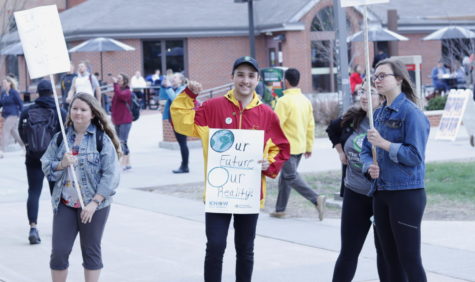As campaigns heat up, many ISU students remain apathetic
September 24, 2003
According to a recent poll conducted by CBS News, 67 percent of registered Democrats couldn’t name a single Democratic presidential candidate. But one ISU professor estimates this percentage skyrockets to 90 percent on the ISU campus.
Steffen Schmidt, university professor of political science, said there is no immediate solution to voter apathy among the student population because many factors contribute to nonparticipation in the political system.
“The biggest problem is that college students are not real people,” Schmidt said. “They’re in between lives.”
Amber Luckstead, freshman in communication studies, agreed. Luckstead said although she’ll eventually register to vote, local issues don’t interest her at the moment and national issues seem too abstract.
“I’m just one out of how many people?” Luckstead said. “I don’t see me changing anything.”
Schmidt said many students, such as Luckstead, don’t think they can make a difference. He said they believe the election process has “all been wired. It’s all been set up. ‘Why should I spend the time voting?'”
Robert Lowry, associate professor of political science, said students fail to vote because they have busier lives than the general public and voting is not their top priority.
“Students have a lot of other things going on,” Lowry said.
The candidates themselves are partly to blame for voter apathy, Schmidt said.
Students relate to glamorous, interesting people, adjectives that don’t describe typical candidates, Schmidt said.
Rather, the public tends to see politicians as “a bunch of dorks,” he said.
Schmidt said he doubts the addition of Wesley Clark, a popular retired general, to the race will increase voter interest. Although Clark is a Washington outsider and war hero, both of which Schmidt said were advantages, Clark will be hurt by his lack of campaigning experience.
As the campaign heats up, Schmidt said more people will recognize the candidates, but not necessarily vote.
“People are going to be more aware,” Schmidt said.
Lowry said student apathy doesn’t pose a large problem.
“If people who don’t want to vote think it’s a problem, they can vote,” Lowry said.
Some students said they believed voting is important. Tonya Haack, senior in child, adult and family services, said she plans to vote in the next election.
“I want to support what I believe,” Haack said.
















